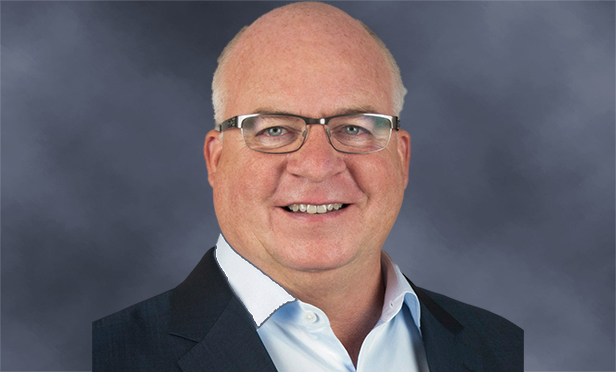 Bruce Ford, Southeastern regional president, Transwestern
Bruce Ford, Southeastern regional president, Transwestern
ATLANTA, GA—Since the close of 2017, Atlanta's economy and commercial real estate market has outperformed the nation. In the second quarter of 2018, large amounts of construction have hit the pipeline with 1.7 million-square-feet of office space and 14.4 million square feet of industrial space expected to be delivered by 2019. Rental rates have also continued to rise in nearly every submarket due to strong demand caused by this limited supply. But what indicators are causing Atlanta's surge in demand and what can we expect for the rest of 2018 and into 2019?
Transwestern's Southeast president, Bruce Ford, says five key indicators can predict what Atlanta's metro can expect for the second half of the year. His decades of experience provide first-hand insight on each sector impacted by this rapid growth.
In this exclusive Q&A with GlobeSt.com, Ford discusses trends he sees shaping the Atlanta market. The transcript has been edited for length and clarity.
Steve Lubetkin: We'd like to get your take on what's going on in Atlanta.
Bruce Ford: We're very excited about what is going on in Atlanta. In fact, just a week ago, the announcement came out that the Atlanta metropolitan area added just under 100,000 jobs over the last 12 months, I think the number was just over 97,000 jobs. So that's a very robust job growth trajectory for the Atlanta metropolitan area. And that will continue to show declining unemployment rates and compression for quality candidates in the job market.
But Atlanta benefits from a combination of factors, that seems to be a continued push behind these job growth numbers. First is that we have a relatively low cost of living by comparison to the northeast and the Midwest, a very business-friendly government and regulatory environment. Of course, we have the world's busiest airport by traffic, a strong educational graduate draw, and if you draw a circle around where those universities are, from northern Florida up to the North Carolina/Virginia border, to the Mississippi River, for the most part what you would see is that Atlanta is really the only major metropolitan area in that circle. There are secondary markets and tertiary markets, but Atlanta continues to be the number one draw for young people that are coming out of colleges or postgraduate colleges, in terms of a business environment and a social environment that they'd like to be a part of. And so we're able to continue to bolster those employment numbers and continue to grow as an economy.
Steve Lubetkin: Is that the primary reason that Atlanta is outperforming the nation from a from an economic standpoint?
Bruce Ford: Atlanta has traditionally competed primarily with the state of Texas. We certainly compete with the secondary markets around the south, but if we look at major metropolitan areas, Atlanta and Dallas are looked at very similarly. Dallas has very good weather, good transportation, good airport, but Dallas competes with Houston, and Austin, and San Antonio, in a much more robust way than Atlanta has to compete with Macon or Charlotte or other markets, like Birmingham. I think that the draw to Atlanta is just the magnetism is that much stronger.
You have a quality of life, and you have an environment where people are excited about being in and around the area, and the job growth here, along with the movement to urbanize living. It's been very successful here in Atlanta for people to be able to move into the urban corridors and have some access to mass transit, and have an energy around those communities like we do in Midtown and Buckhead and Downtown, that young people in particular are drawn to.
Steve Lubetkin: The numbers that we're seeing suggest that there are some major blocks of space in the pipeline for office and industrial in the Atlanta market. Is that going to help with the current demand for space in those sectors?
Bruce Ford: Demand is steady and healthy, but it's not roaring in the way that the office recovery was in the last few years, or coming out of the last cycle. The pipeline of new office space is largely limited to build-to-suit projects or spec projects that have a unique characteristic. For example a mixed use environment like Avalon or Atlantic Station or projects in Midtown such as the tech center that Portman is a part of, that is drawing Georgia Tech and they're attracting other technology firms.
As we look at the marketplace there is not a tremendous amount of spec space to come into the market. In fact, there's really hardly any spec space that's under construction. There is plenty in the books for planning purposes. But we're not seeing an explosion of speculative office space like we did coming out of the last cycle. So, on the one hand you can look at it and say, 'Well, there's a lot of space coming to Atlanta.' There really isn't. The build-to-suit projects are going to absorb the demand that is already here as well as future demand for relocations of companies to Atlanta.
Steve Lubetkin: What about coworking space as an option for filling office buildings?
Bruce Ford: I think we're going to need to see how it plays itself out. Is this a long-term, sustainable model for markets like Atlanta, where space is relatively inexpensive. It makes sense in other markets, where you have very high rental rates, where incubators or small organizations or even large organizations that don't want to commit long-term to space want to be able to have those opportunities available to them. I think the market is still adjusting, right now it's having an impact on traditional office leasing, because the competition for that space is sort of you have your traditional office user or do you have a coworking space and if I'm a landlord, which do I want?
On the industrial side, demand is certainly still very healthy, but not at the amazing levels that we saw in 2016 and 17. Industrial developers can turn the pipeline off and on pretty quickly. I don't really see an oversupply there. The e-commerce and logistics businesses are still very active in Atlanta. And what they are really looking for is that last mile space, which is much harder to get. Atlanta still has a number of what we call “big bombers” that are out there. There's Wayfair for a million square feet, and other manufacturers that are looking for these million square feet plus type of projects, but obviously those are projects that are going to have to be outside the perimeter of Atlanta, in the traditional industrial markets, but we don't see an oversupply, we see continued strong demand.
Steve Lubetkin: What about the rise of technology companies coming to Atlanta? There's been a lot of announcements of people taking space for Southeastern regional headquarters and corporate headquarters. How does Atlanta react to the tech mecca trend?
Bruce Ford: Midtown is the primary hub of Atlanta's tech businesses, evidenced by NCR, Anthem, and others that are moving their operations to these areas to be near the young professionals graduating from Georgia Tech and other schools, who want to live in that neighborhood. We're seeing some of that begin to flow a little bit more Downtown, as a number of startups have been attracted to areas near Georgia State, which gives them access to young talent as well.
But many of the older buildings have this sort of character to them that makes them very attractive for refurbishment and repurposed as creative, tech office space. I think we will continue to see that continue because those employers, as well as those that are filling those jobs, want to be near, and have proximity to, similar and like interests, and not be isolated. That becomes more of an energetic dynamic that will continue. As students move here, as professionals move here, they'll attract other people to be here. That will continue to grow. Does that lead to a tech bubble? I think it will become a much more sustainable part of our overall economy as time progresses.
Steve Lubetkin: Is there anything else you see is an important trend in Atlanta that you think is worth highlighting?
Bruce Ford: What we see in a lot of markets is the question of how long this greater emphasis on efficiency with consolidation of businesses, and putting more workers in less space continues.
Companies have squeezed their operations. They are cramming more people into smaller spaces, or into open workspaces or working from home. In some instances, we would say that pendulum has swung too far in that direction, that as companies are now beginning to evaluate productivity and worker efficiency, as well as output, that sometimes they've gone too far in terms of creating that hoteling type of space in their operations.
We'll see if that adjusts over the next four or five years, but the compression of space, it just it has to start to wane, because so many companies have already done it. The densification, I think, is more about location, and wanting to be in a more dense environment where you have proximity to amenities, and proximity to your housing, to create more of a live-work-play environment.
I think that is an emphasis that we're going to continue to see evolving here in Atlanta.
Steve Lubetkin: What's your sense for the economy over the next 12 to 18 months you think things are going to be all right? Are there any clouds on the horizon that you're concerned about?
Bruce Ford: As we visit our clients, what we hear more often than not is that those clients did not necessarily anticipate that we would be where we are today.
In other words, if you wind the clock back to three or four years ago, before the election, many clients were telling us that they felt like we were in the last third of the game. If you take the baseball game analogy or a metaphor, we're in inning seven, eight, or nine. Today, you hear more clients say that we might be in inning five or we could be in inning four, or just approaching inning seven.
The marketplace has certainly been able to withstand the interest rate hikes and seems like it will be able to continue to absorb those hikes. The rise of construction costs and pricing of land has been a governor on unfettered development. The office markets are probably healthier in this recovery than in many past recoveries. The buoyancy of that, along with the continued attraction of foreign capital to the US real estate investment markets seems to portend that we will continue to have some good dynamics in our office and industrial markets over the next couple of years. Of course, there are always the large catastrophic events that could negatively impact that. But for the moment, things are actually quite healthy in terms of how companies are taking advantage of the current economics that are out there. Our clients are communicating with us that they feel good. They would like to find more product to buy. They would like to see more transactions but the product that they have is doing relatively well and they're outpacing their expectations.
© 2025 ALM Global, LLC, All Rights Reserved. Request academic re-use from www.copyright.com. All other uses, submit a request to [email protected]. For more information visit Asset & Logo Licensing.








